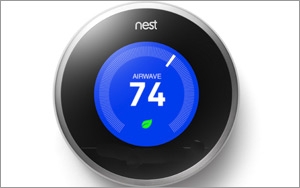 The companies behind the growing Internet of Things may have to do a little consumer massaging (and messaging) to allay some deep concerns before their products can reach heavy
adoption.
The companies behind the growing Internet of Things may have to do a little consumer massaging (and messaging) to allay some deep concerns before their products can reach heavy
adoption.
Nearly half (47%) of U.S. consumers with broadband access are concerned about privacy and security when it comes to smarthome devices, according to new research from
Parks Associates. Consumers were equally concerned with both hackers compromising the devices themselves and accessing company-collected data gleaned from those devices, says Tom Kerber, director of
research for home controls and energy at Parks Associates.
“Recent high-profile media reports of hacks into smart baby monitors and connected cars, whether valid or not, have
heightened consumer concerns over privacy and security for connected home systems,” Kerber says. “Companies need to move quickly to reinforce the security of their solutions as well as
ensure the consumer's right to privacy.”
advertisement
advertisement
The research suggests the companies developing connected home devices need to develop a basic framework when it comes to consumer
privacy rights, such as the right to be invisible, to approve how data is used (and who is using it) and the right to have one’s persona erased. According to the survey, a bill of rights or
protections would ease concerns for nearly three-quarters of consumers.
“These concepts have been thrown around, particularly in Europe,” Kerber tells Marketing
Daily. “If consumers were presented with those choices, their concerns would be [somewhat] mitigated.”
Despite these concerns, it could be awhile before
there’s some true industry standards over privacy and data-use when it comes to the Internet of Things. Getting in front of the issue, however, could be beneficial to many companies. “I
don’t think there’s a coordinated group working on it,” Kerber says. “But I think its a point of differentiation a manufacturer might be interested in pursuing.”